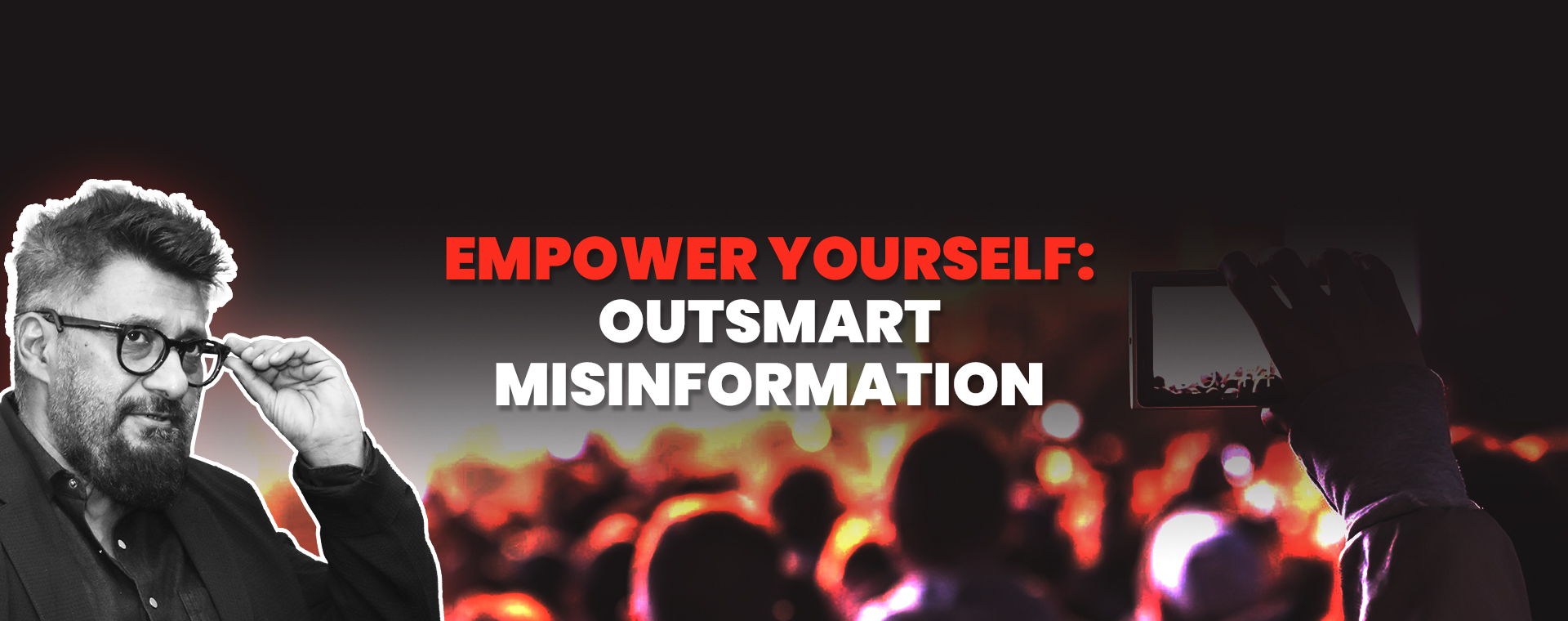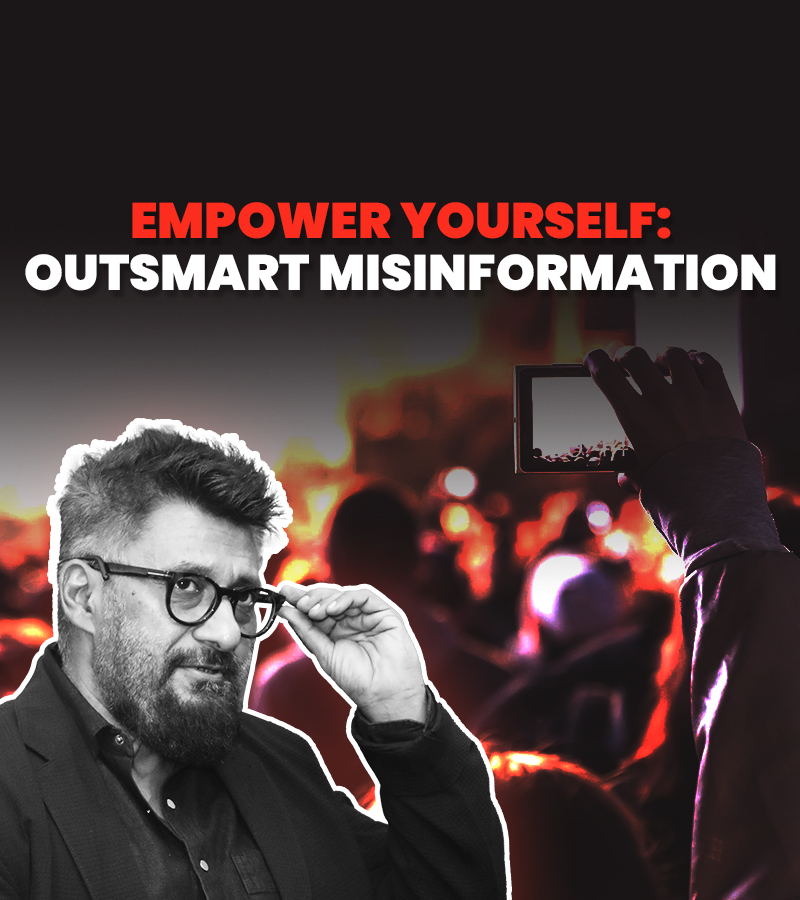

Beyond the Headlines: Navigating the Media War and War of Narratives
We explore media ownership, the rise of citizen journalism, and how YOU can be a discerning consumer of information in the digital age.
The news. It’s a constant stream of information bombarding us from TVs, phones, and laptops. But have you ever stopped to question what shapes that information? In today’s world, the media landscape is a complex battlefield, a “media war” where narratives are constructed, challenged, and weaponized. In this blog, we delve into the realities of today’s news cycle, where media is a business, narratives are king, and citizens hold the key to reclaiming the power of information.
Gone are the days of the singular, trusted news source. Liberalization has ushered in a plethora of media outlets, each vying for our attention. But what lurks beneath the surface of this seemingly diverse media landscape? The harsh reality is that many of these channels are owned by corporations or sometimes politicians. This creates an inherent conflict of interest, raising the question: are we getting objective news or a carefully curated narrative that serves the owner’s interests?
The consequences of this media ownership are far-reaching. News becomes less about informing the public and more about influencing it. Stories are framed in a way that aligns with the owner’s agenda, be it political or economic. Nuance is sacrificed for sensationalism, fostering echo chambers where viewers are constantly bombarded with information that reinforces their existing beliefs. Critical thinking becomes a casualty and the lines between fact and opinion blur.
The rise of YouTube further complicates the media landscape. While offering a platform for diverse voices, it also allows for the unfettered spread of misinformation. Anyone with a camera and an internet connection can become a “reporter,” churning out content that may not be factually accurate but can be highly persuasive, especially for those seeking confirmation bias. Algorithmic manipulation further fuels the fire, suggesting content that aligns with a user’s existing views, creating a self-reinforcing cycle of misinformation.
The Ethical Dilemma: Ownership and Accountability
The issue of media ownership raises a critical question: is it ethical for corporations or politicians to control news outlets? The answer is complex. On the one hand, these entities provide the financial resources necessary to run a news organization. However, this financial dependence creates a potential for bias. Corporations may shy away from stories that negatively impact their bottom line. At the same time, politicians may use media outlets to promote their agendas.
There’s also the issue of accountability. Traditional media outlets are held to journalistic standards and professional ethics. However, the same may not be accurate for content disseminated through social media or unregulated online platforms. The lack of accountability makes it easier for misinformation and propaganda to spread unchecked.
The Role of Citizens in the Digital Age
So, where does this leave the citizen? Are we simply passive consumers of a media war we have no control over? The answer is a resounding no. Citizens have a critical role to play in reclaiming the power of information. Here’s how:
1. Media Literacy: Becoming a Discerning Consumer
In an age of information overload, developing media literacy skills is crucial. Become a discerning consumer of news. Question the source: who owns the outlet? What is their known bias? Look at the framing of stories and the evidence presented. Don’t rely on just one outlet; seek diverse perspectives for a well-rounded picture. Fact-checking websites and reputable news organizations known for their investigative reporting can be valuable resources in this process.
2. Supporting Independent Media: A Lifeline for Truth
Independent media, free from corporate or political influence, ensures a healthy media ecosystem. Seek independent journalists and news organizations known for their commitment to truth and investigative reporting. Consider subscribing to their platforms or making donations to support their work. A thriving independent media landscape provides a crucial counterpoint to the narratives pushed by corporate-owned outlets.
3. Engaging in Critical Discourse: Beyond Echo Chambers
Don’t be a silent observer in the media war. Engage in respectful conversations about current events, even if you disagree with someone’s viewpoint. Challenge misinformation and promote fact-based discussions. Social media platforms can be tools for facilitating these discussions, but be wary of online echo chambers. Seek out diverse perspectives and strive for a balanced understanding of complex issues.
4. Citizen Journalism: Empowering the Public
Technology has empowered citizens to become active participants in the news cycle. If you witness something newsworthy, consider documenting it responsibly and sharing it with credible news outlets. This can be a powerful way to challenge the narratives controlled by mainstream media. However, it’s essential to be mindful of ethical considerations like verification and responsible representation of events.
The Future of Journalism: Quality in the Digital Age
As the media landscape continues to evolve, the question remains: how can we ensure quality journalism thrives in the digital age? Here are some potential solutions:
Supporting Investigative Journalism: Investigative journalism, which uncovers wrongdoing and holds powerful institutions accountable, is crucial for a healthy democracy. However, it requires significant resources and time. Supporting investigative journalism by subscribing to publications that invest in this type of reporting or directly donating to investigative journalism funds can help ensure its continued existence.
Promoting Media Literacy Education: Equipping future generations with media literacy skills is essential. Integrating media literacy education into school curriculums can empower students to become critical information consumers. This education should cover topics like identifying bias, evaluating sources, and understanding the role of advertising and propaganda.
Demanding Transparency and Accountability: Holding media outlets accountable for their reporting is vital. This can be done by supporting organizations that monitor media bias and hold outlets accountable for ethical lapses. Citizens can also voice their concerns directly to news organizations and advertisers who support outlets that consistently spread misinformation.
Reimagining the Business Model: The digital age has disrupted the traditional media business model, heavily reliant on advertising revenue. Finding sustainable funding models that don’t compromise journalistic integrity is critical. Subscription models, micropayments, and non-profit funding could be potential avenues for exploration.
Citizen Action: A Call to Arms
The media war may be raging, but citizens are not powerless bystanders. By developing media literacy, supporting independent journalism, engaging in critical discourse, and embracing citizen journalism, we can reclaim the power of information and ensure a media landscape that serves the public good, not vested interests.
A Conversation Starter
This blog is just the beginning of a conversation. We invite you to engage further. Share your thoughts on the media war, the role of social media, and how we can collectively work towards a more informed and equitable information landscape. Tell us your experience in the comments:
What are your experiences with media bias? Have you encountered instances where news stories seemed slanted to favor a particular viewpoint? How did you identify this bias?
How can social media platforms be held accountable for the spread of misinformation? What are some potential solutions to this challenge?
What role can schools play in promoting media literacy? What topics should be covered in media literacy education programs?
How can we support a sustainable future for quality journalism? What are your thoughts on the different funding models mentioned in the blog?
By actively participating in shaping the media landscape, we can ensure that the narratives we consume are not weapons in a war but tools for understanding and progress. Together, we can raise the bar for news and ensure that truth, not manipulation, reigns supreme.






